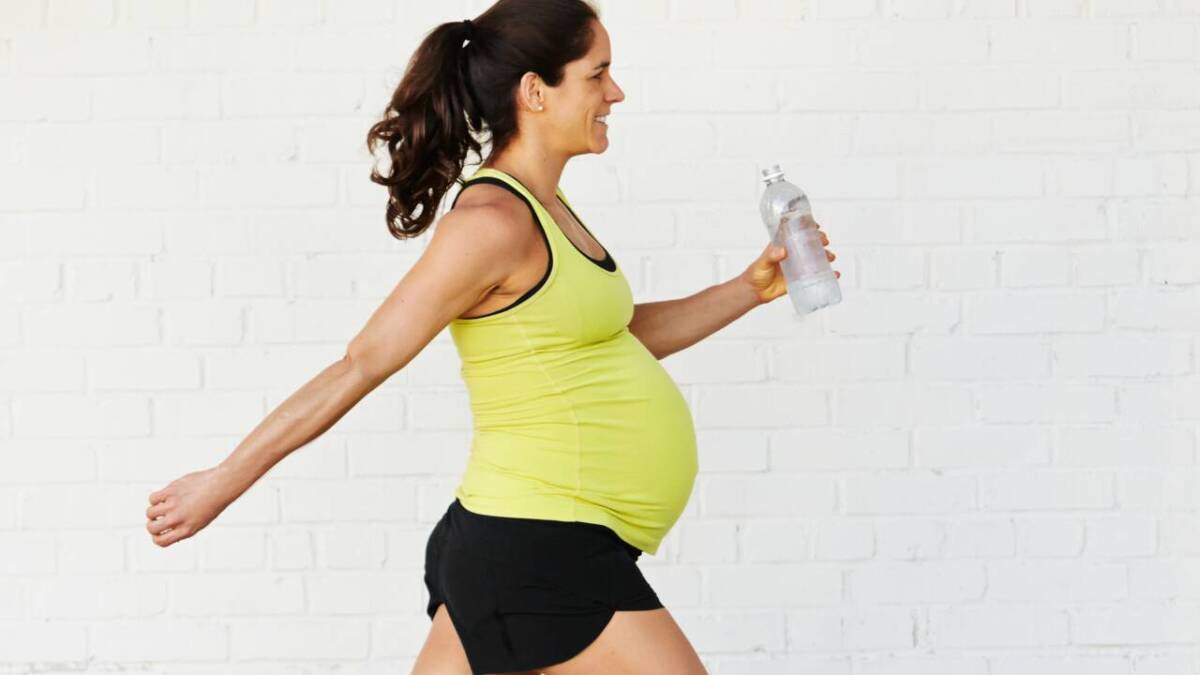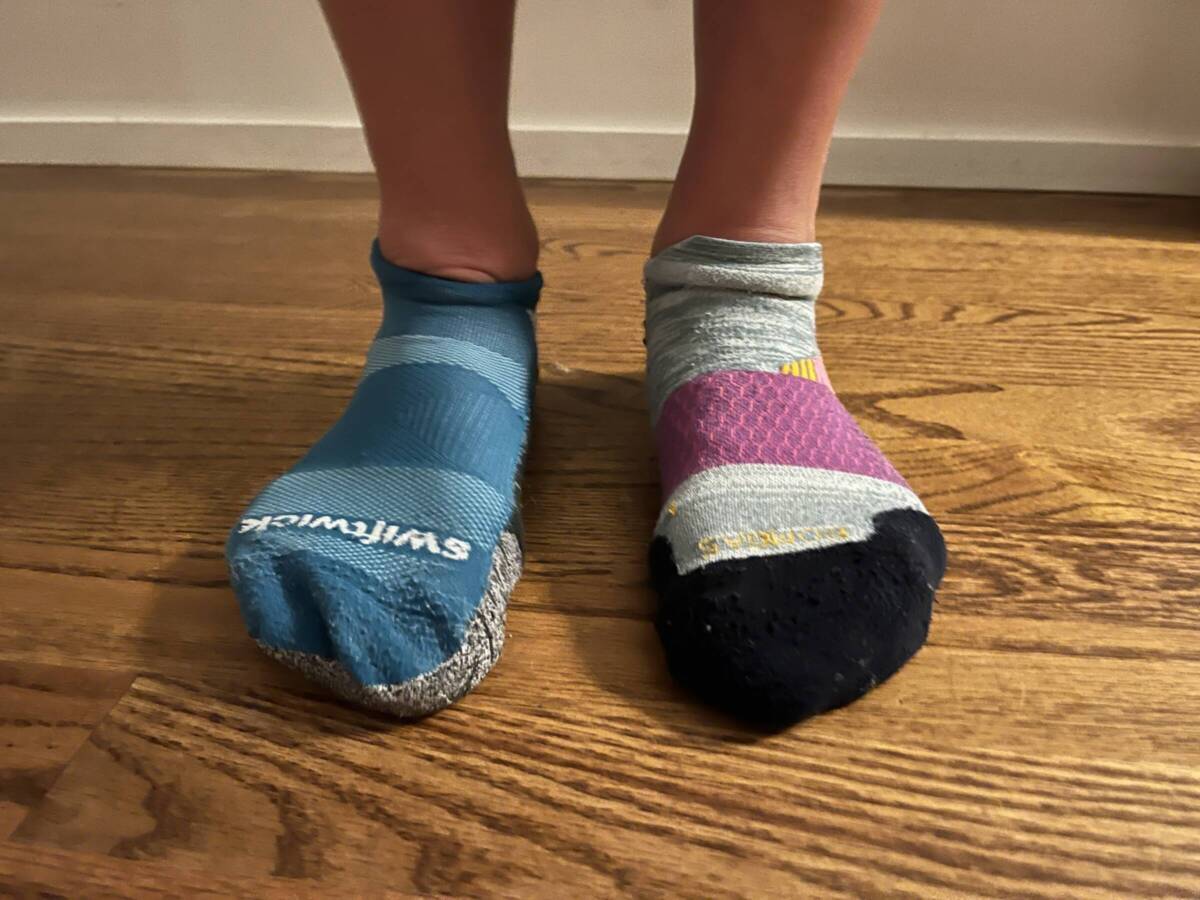Does Running While Pregnant Shake the Baby? Uncovering the Truth
Does running while pregnant shake the baby? Let’s put this question to bed. No, running while pregnant does not shake the baby in the way that leads to shaken baby syndrome in the womb. This is because the fetus is protected by the amniotic sac filled with fluid.

This is a widespread misconception that running while pregnant can shake the baby in a harmful way. But I got with OB gyn Dr. Jaclyn van Nes (a mother runner, by the way), to explain the pregnancy belly and the impact of running on the baby while pregnant.
I can tell you when I ran while pregnant, I was surprised by how cruel people were when they would see me—honking and yelling inappropriate things as if I was doing something like smoking and eating sushi. No! In fact, running while pregnant has many benefits for both the mother and the baby that far outweigh ANY risks. And I gave birth to two healthy (and amazing) babies…So, let’s get to it to answer “does running cause shaken baby syndrome in womb?” once and for all.
Download My Free Postpartum Running Plan
Skip Ahead
Does Running While Pregnant Shake the Baby?
Running while pregnant does not shake the baby. Your baby isn’t naked and afraid while in your belly. It’s protected by what’s called an amniotic sac. The amniotic sac is filled with fluid that surrounds the fetus during pregnancy.
The sac is filled with liquid made by the fetus and the membrane that covers the fetal side of the placenta (amnion). This essentially acts as a bubble that protects your growing baby from trauma or injury and performs functions such as regulating the temperature of the fetus.
The amniotic sac also provides cushion for the umbilical cord, keeps your baby safe from infectious agents, and serves as a source of fluid and nutrients such as proteins, electrolytes, immunoglobulins, and vitamins from the mother.
This sac also provides “fluid, space, and growth factors to allow normal development and growth of fetal organs such as the musculoskeletal system, gastrointestinal system, and pulmonary system.” Your doctor may use amniotic fluid as a tool to monitor the progression of your pregnancy and the health of your baby.

Impact of Running on the Baby While Pregnant
There have been no recognized consequences or realized health risks to running while pregnant to the mother and baby, including causing shaken baby syndrome in womb. In fact, the benefits are numerous including for both the health of the baby and the mother. (Read more about this in my article on the baby benefits of running while pregnant).
In fact, in a large study of about 1,300 pregnant women, continuing to run during pregnancy did not appear to cause early births or low birthweight, as suspected or feared. What’s more, assisted vaginal delivery rates were higher in women who ran, possibly due to increased pelvic floor muscle tone, the researchers note.
“There are certain pregnancy complications that your doctor may recommend for you to stop running such as pre-eclampsia or premature rupture of membranes but in general, most patients can safely run or have some form of exercise up until delivery,” shares Dr. van Nes. “Staying active in pregnancy helps reduce your risk of gestational diabetes, pre-eclampsia, and improves your chances of having a vaginal delivery.”
7 Tips for Running Safely While Pregnant
1. Listen to your body.
Running while pregnant is not the time to run a PR or to try something brand new. For most pregnant runners, you will want to keep the effort easy to moderate and not push it. I know runners are used to pushing their bodies, but not when you’re pregnant. If you’re fatigued or something doesn’t feel right, scale back and consider calling your doctor.
2. Run by effort rather than pace.
Similarly, you will not want to try to run your prenatal paces. If you are continuing to do workouts while pregnant, do them by effort over pace. If you have a threshold workout, go for a 6-7/10 rate of perceived exertion rather than your usual tempo pace, for example.
Using hills as a way to work your cardiovascular system is a great way to get fitter without overly taxing your body.
3. Hydrate like a champ.
During pregnancy and lactation, your fluid shifts will be higher. This is because your body is holding more fluids and your body creates more heat so the shifts are greater. Also, your kidneys work a lot faster when you’re pregnant so it’s much easier to become dehydrated and it’s harder to regulate your temperature, notes Dr. van Ness.Therefore, electrolytes will be helpful to restore higher fluid losses explains registered sports dietitian Amy Stephens. Run with a water bottle at all times. Aim for 16 ounces of fluids an hour and about 400 mg of sodium. Prehydrate for longer runs with a sports drink. Read more details here.
Meanwhile, pre-plan your pit stops too…
4. Eat enough.
As your pregnancy progresses, so do your nutritional needs. In the second and third trimesters, you will need about 350-450 more calories a day. Aim to eat a mid-morning and late-afternoon snack, and every meal should include healthy fats, carbs, and protein to keep you fueled and satiated.
5. Get the right support.
Be sure your running shoes fit your growing pregnancy feet. As your tummy grows, a belly band or maternity support belt can help take the pressure off and can even prevent back pain and pelvic floor injuries.
While we are talking about support, enlist slower friends to run with you and ensure you’re safe and running at an easy pace.
6. Pay attention to your feet.
Relaxin can make your joints unstable so that it is easier to fall. Your growing belly doesn’t help with balance either. For this reason, pay attention to where your feet are falling and avoid trails and uneven terrain.
7. Call your doctor.
Never hesitate to call your doctor’s office to share any concern or question you have. The stakes are high. There’s no room for being shy!
Get more specific running while pregnant tips in my Complete Pregnant Running Guide.
Run Safely While Pregnant
You can run safely while pregnant for your entire pregnancy as long as it feels comfortable for you! I was able to run until the day I delivered with my first but had to stop early in the third trimester with my second child because of back pain.
Communicate with your doctor about how much you are running, how hard, and how you feel. Always call them if anything feels off, weird, or hurts. Do not push through pain when running while pregnant.
Let your body be your guide. It’s smart and will communicate with you what your current limits are for you and your baby.
Related: Can Exercise Help Morning Sickness?
Bottom Line
Running while pregnant does not cause shaken baby syndrome in womb. In fact, running while pregnant has health benefits for both you and your baby. Therefore, if you ran before you became pregnant—keep going! But do listen to your body. Running while pregnant is not the time to push your limits. It’s always better to play it on the safe side when pregnant. Running will be there for you when you’re not growing a human in your belly!
If you’d like assistance with your pregnant running journey, check out my run coaching services. Were you afraid of shaken baby syndrome in womb running while pregnant?






